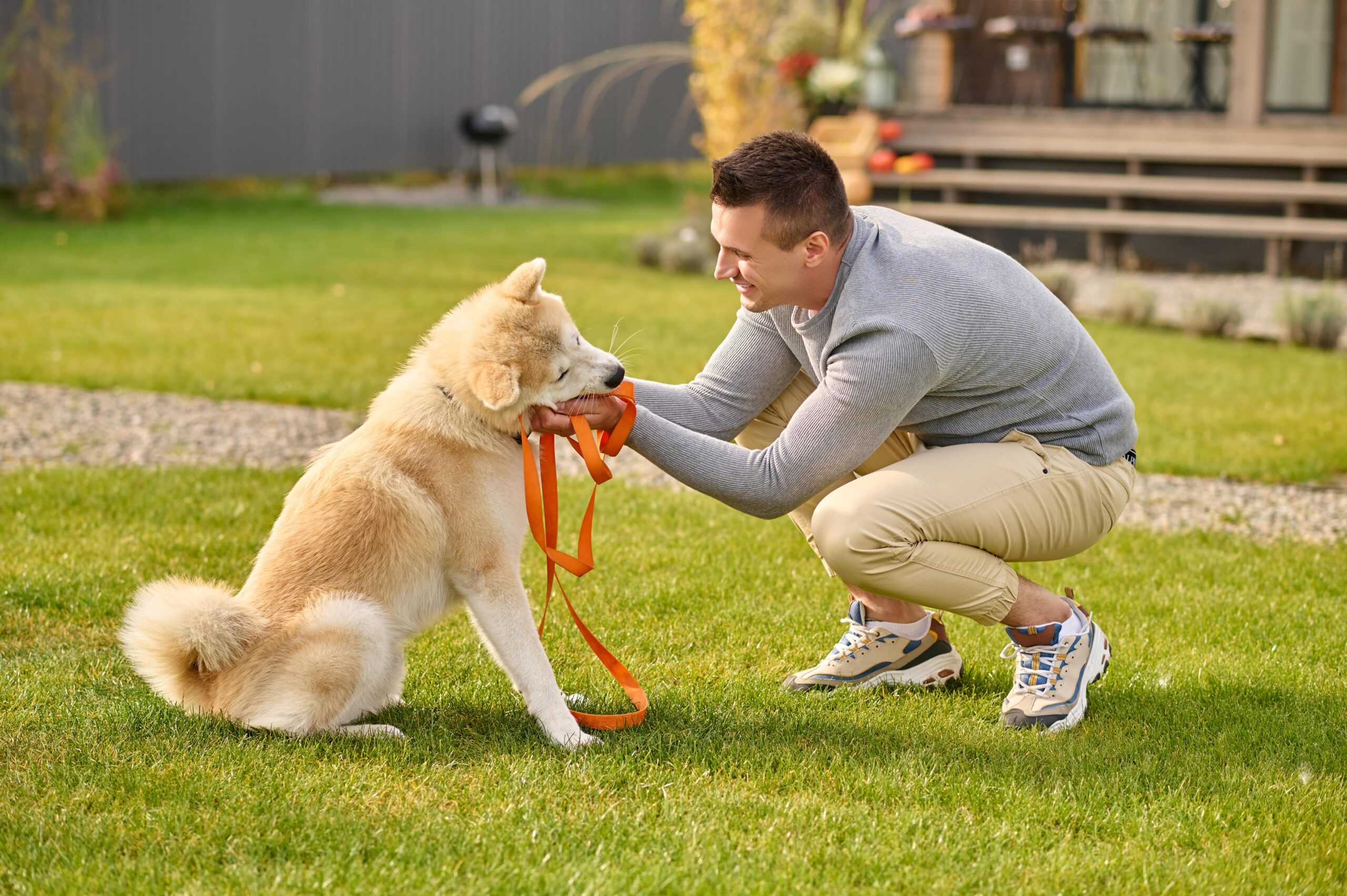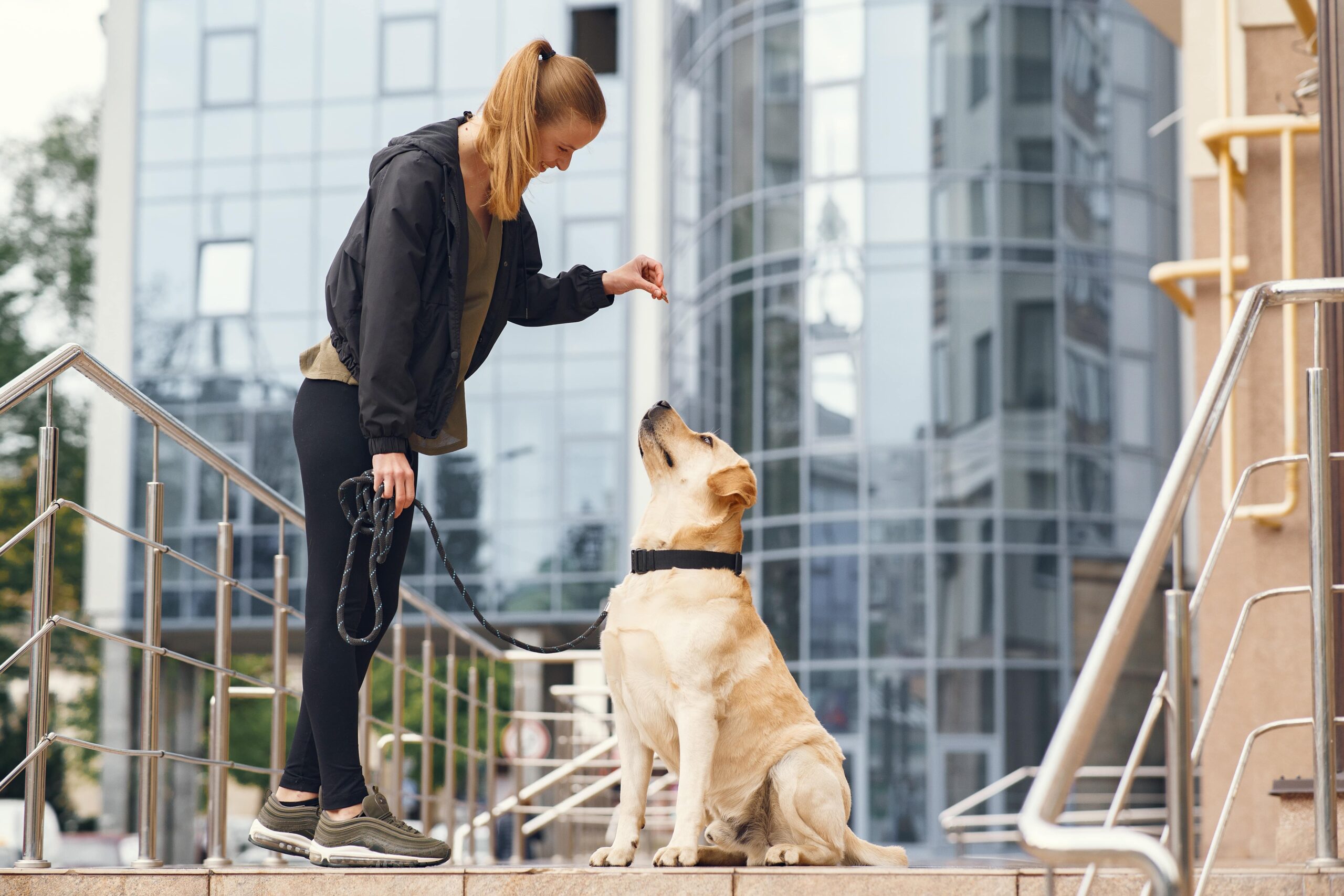Science Behind Dog Training Improves Learning and Performance
The Science Behind Dog Training exposes how intensive research is transforming how dogs learn, communicate and help human beings. Service dogs are not only good companions but they are saviours, standers and friends to individuals with various physical and emotional requirements. After each trained service dog, there are years of dedication, science and professional advice. Dogs are redefining how they learn and behave, and the latest research findings by Dr Erin Hecht of Harvard University are redefining the process of learning and behaviour in dogs, and this has been a landmark research that can revolutionize service dog training in the future.

Understanding the Dog’s Brain
The Canine Brains Project at Harvard, led by Dr Hecht and her team, studies how dogs’ brains are wired for specific functions. They use non-invasive MRI scans to examine both different breeds and individual dogs. Their research explores how variations in brain structure influence behavior, intelligence, and learning ability.

There was a purpose behind every breed of a dog developed, and it was herding, hunting, guarding or companionship. This led to the development of the brain of each dog in different ways with their respective dogs having their respective strengths of behavior. As an example, a scent-detection dog can be a specimen that has smell and pattern recognition brain regions. In the meantime, service dog tends to exhibit stronger relationships in the spheres of empathy, communication and attention.
Dr Hecht explains,
“It’s like in a jar. Every history of da dog provides an opportunity to examine how evolution can help create behavioral characteristics by modifying the brain.
Why This Research Matters for Dog Training
It is a huge time and resource consumption to train a service dog. The cost of training each dog is more than 50,000 dollars, and half of them cannot be used as service dogs. Waiting lines of trained dogs can be many years long.
The aim of the research of Hecht is to find such biomarkers (biological or neurological indicators) of the dog that could learn and act better in certain positions.

When the trainers manage to recognize successful learners at a young age, there is more time and resources they can allocate to the most promising dogs. This method ensures that training is more effective and that the failures are reduced.
It benefits not only service dog organizations but also pet owners and trainers worldwide. By understanding how dogs learn and behave, they can train family pets more effectively and compassionately.
How Brain Science Improves Training Outcomes
The brain of dogs has already shown signs of trainability and human-controlled communication, which was already discovered by Hecht in his lab. These results have significant implications for the way in which trainers choose, train, and maintain dogs in their real-life environment.
Key insights include:
- The brain patterns can predict the potential of individual learning.
- Communication-oriented breeds exhibit greater responses in areas related to empathy and human attention.
- 🐾 Brain wiring is a product of early-life experiences, i.e., stress or neglect can have a long-term impact on either learning or behaviour.
- 🦴Specific training can promote neural circuits of focus, memory, and emotional control
Unluckily, this vital work has been jeopardised by cuts in funding, which means that data collection and analysis may slow down, that is, there will be fewer discoveries and slowness in advancing to create better training methods.
Challenges in Dog Training Services
It is not the orders they teach service dogs, but it is the manipulation of emotional intelligence, trustworthiness, and steadfastness. Service dogs are helpful to individuals who have mobility problems, PTSD, autism, diabetes, epilepsy, and even severe allergies.
However, training programs face multiple challenges:
- High failure rates (up to 50%)
- Seven-year-long training (maximum).
- Lack of finances and excessively long queue lines.
- Problems in knowing what dogs will perform.

The study by Dr Hecht addresses the gap between neuroscience and training and enables specialists to make informed decisions regarding selection and training based on the data.
How This Impacts Everyday Dog Owners
Although this study is also important to service dogs, the pet owners benefit, too. The knowledge of how the brain of dogs learns helps trainers to come up with positive reinforcement to be used in training the dogs to ensure it fits the instincts of dogs. Rather than being punitive, trainers can train the way dogs think, learn, and bond.
Dog owners can take advantage of these insights by:
- Applying consistency in training programs.
- Rewarding the good behaviours with the use of praises or treats.
- No severe punishment that enhances anxiety.
- Providing games and puzzles for the dogs.
- Realizing that every dog learns differently.
Petsfolio Dog Training – Bridging Science and Real-World Results
We do not think that there are any other elements of great dog training than compassion, consistency, and science. Petsfolio draws inspiration from scientific research by experts like Dr. Erin Hecht. The team applies evidence-based training methods to strengthen the bond between pets and their families.
Our professional trainers focus on:
- ✅ Obedience Training: Teaching commands and everyday manners
- ✅ Behavioral Correction: Reducing anxiety, aggression, or reactivity
- ✅ Service and Therapy Dog Training: Preparing dogs for specialized roles
- ✅ Puppy Socialization Programs: Building confidence and communication early
- ✅ Positive Reinforcement Methods: Reward-based learning tailored to each dog’s temperament
Whether your dog needs basic obedience, emotional support training, or behavioral modification, Petsfolio’s dog training programs can help. Each program is designed to bring out the best in every dog.
By combining a collection of scientific knowledge and practical experience, Petsfolio not only helps dogs learn but also enables them to flourish and grow confidently.
References Link: https://www.nytimes.com/2025/11/06/science/lost-science-hecht-service-dogs.html#
Send us a Message
Enjoy this post?
Check out some more great articles and other content.
Punganur Cow Diseases are Rare Compared with Modern Crossbreeds because this native d...
Read The ArticleMany dogs find grooming stressful, especially those sensitive to new environments, st...
Read The ArticleDog insurance claim decisions can be confusing for pet owners, especially when choosi...
Read The Article
 Download App
Download App Join
Join Support
Support












